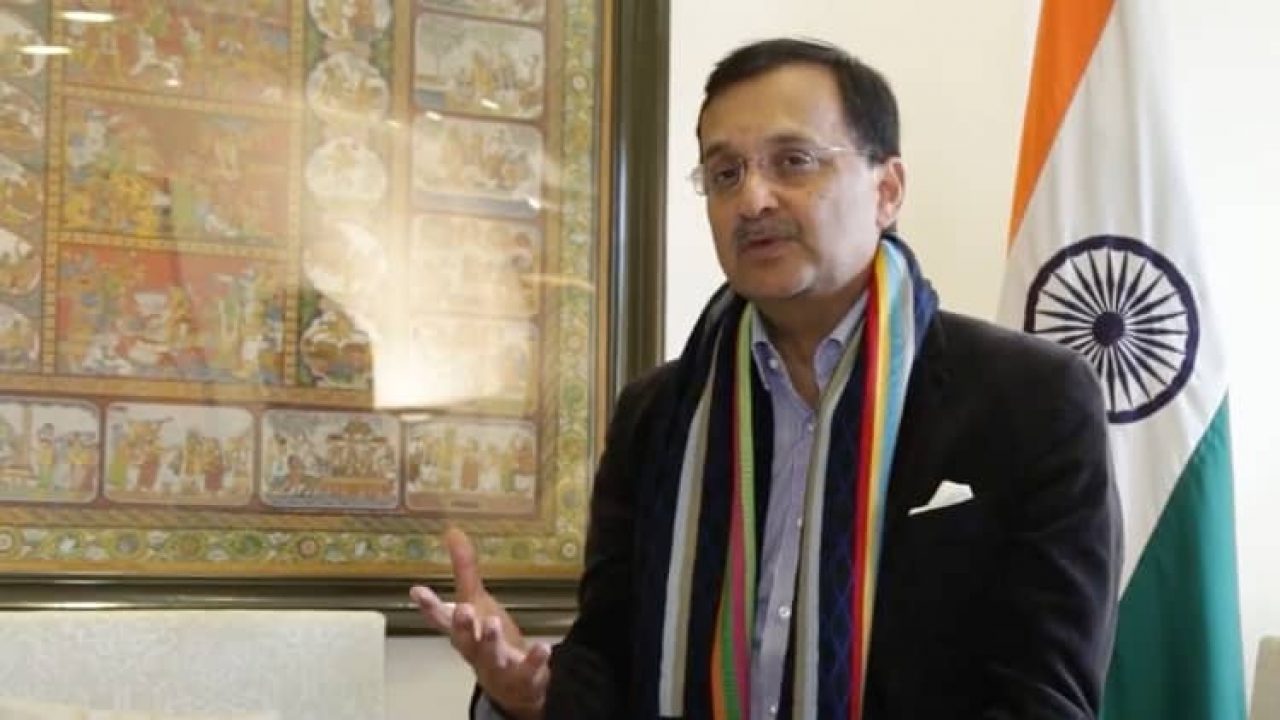Luis Ayllón
The Indian ambassador to Madrid, Dinesh K. Patnaik, says that India wants a greater Spanish presence in its relations with Ibero-America, given its roots in that subcontinent.
Pantaik, who held a meeting with journalists last Thursday at the Press Association of Madrid, explained the situation in which India finds itself, about to hold elections in which some 970 million people are called to participate, a figure that represents almost a quarter of all those who will take part in different electoral processes in the world during 2024.
The ambassador assured that India has very good relations with Spain, but pointed out, nevertheless, that both countries have to “discover each other”, take advantage of their potential and “go to the next level”. On the economic front, he pointed out that bilateral trade is already worth around 8 billion dollars, and noted that there is a favourable scenario for these exchanges to continue to grow in sectors such as defence and space technology.
The ambassador placed special emphasis on relations with Ibero-America, which India would like to see grow even more, despite the fact that they have grown considerably in the last decade. Acknowledging that the region used to be seen as an area far removed from India, he said that now there is a much closer relationship.
He therefore believes that, with Spain, given the roots that our country has with the region, there are “many areas in which to collaborate”. It is something that we have been talking about for a long time,” he said. “In the last 10 or 15 years our relationship has changed completely, it was seen as very distant from India, today it is very close, investments are greater, politically we have good relations, we also have good institutional relations with embassies in almost all the countries and many Indians already speak Spanish”.
He said that Spain “has, beyond historical relations and a common language, roots in many areas, culture, the banking sector, industry…”. He added that if the two countries worked together to strengthen India’s relationship with Latin America, it could become a “new partner“.
The ambassador commented on the decision of the President of Argentina, Javier Milei, not to introduce the country into the political and economic forum that seeks to give a greater voice to the countries of the global south, the BRICS, and assured that the functioning of the bloc will not change because a state finally decides not to join the bloc, reports Efe.
“The BRICS are the voice of the global south, where more than 70% of the population lives, but the world is dominated by the West, there are many countries that want to join, we have 45 applications and we decided that six new ones should join, one of them was Argentina. With the new government, Argentina does not want to join, that does not change what the Brics are”, he pointed out.
Along these lines, he stressed that “it’s fine if they don’t want to be members”: “The Brics is a group of countries that belong to the global south, we have many issues to work on: energy security, general security, migration, the multilateral system, climate change, terrorism… issues that we all share, we see what is happening in Gaza and it is not the rich countries that suffer, but the poor, the south suffers more, we need to work together to have a voice that is heard”.
“Milei has new ideas of how Argentina should see the world and we wish him luck, they are part of the international community and the south, we will work with them, it is a country’s choice, the Brics does not change because one country does not want to join,” he added.
Patnaik claimed the role of his country as a key player in world development over the coming decades, in political and economic terms, underlining that the forecasts of the main international organisations anticipate that the Indian economy will exceed 4,000 billion dollars this year for the first time.
The ambassador added that India is on track to overtake Japan and Germany to become the world’s third largest power, and emphasised that one of its main assets is its own population. The country overtook China as the world’s most populous country in 2023 and is already moving towards 1.5 billion inhabitants, with a huge young population and, in gross terms, “will be the world’s largest consumer” in many areas.
In the international arena, Patnaik affirmed that his country’s diplomatic objective is to try to “have good relations with almost all countries” and to weave alliances based on different interests. In relation to the open war in the Gaza Strip, he pointed out that India condemned Hamas’s “terrorism” from the outset, because, he said, “there is no good terrorism and bad terrorism”, and he also considers Israel’s response to have been “disproportionate”. He also advocates dialogue, with a “two-state solution” as the goal. He also justified India’s failure to break off relations with Russia, an “old” ally, but noted that merely abstaining from voting on UN resolutions critical of Moscow sends a “negative signal” in diplomatic terms.
As for India’s upcoming elections, for which the current prime minister, Narendra Modi, is the front-runner, he drew attention to the fact that, given that turnout usually ranges between 65 and 70 per cent, there will be some 600 million people exercising their right to vote. It is “the largest democratic exercise in the world”, in the words of the ambassador, who recalled that it is a phased election spread over more than a month.






